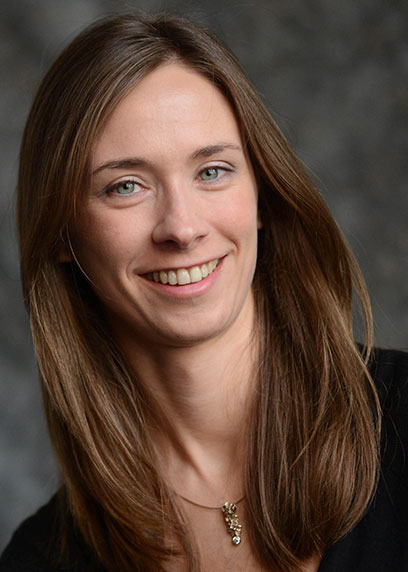

Catherine Gorlé
Stanford University, United States
“Physics-based and Data-Driven Methods for Turbulence Model Form Uncertainty Quantification”
Reynolds-averaged Navier-Stokes simulations are commonly used for analyzing turbulent flow in complex configurations. The use of reduced-order turbulence models raises questions regarding the accuracy of the results; a method to quantify model-form uncertainty would provide valuable information when using the simulations for engineering design. In this talk I will first present physics-based approaches to quantify uncertainty in turbulence and turbulent mixing models. Results for simulations of a pin-fin array heat exchanger demonstrate that the models can successfully provide interval predictions that contain a reference solution provided by large-eddy simulations; however, the predicted intervals can be too large to meaningfully inform design. This leads to the second part of the talk, where I will present initial results on the use of data-driven approaches to obtain predictions with a reduced uncertainty. The results indicate that combining physics-based and data-driven approaches presents a promising route for progress in turbulence model form uncertainty quantification.
Short CV
Catherine Gorlé is an Assistant Professor of Civil and Environmental Engineering at Stanford University. Her research activities focus on the development of predictive computational fluid dynamics (CFD) simulations to support the design of sustainable buildings and cities. Specific topics of interest are: the coupling of large- and small-scale models and experiments to quantify uncertainties related to the variability of boundary conditions, the development of uncertainty quantification methods for low-fidelity models using high-fidelity data, and the use of data assimilation to improve CFD predictions.
Catherine received her BSc (2002) and MSc (2005) degrees in Aerospace Engineering from the Delft University of Technology, and her PhD (2010) from the von Karman Institute for Fluid Dynamics in cooperation with the University of Antwerp. She has been the recipient of a Stanford Center for Turbulence Research Postdoctoral Fellowship (2010), a Pegasus Marie Curie Fellowship (2012), and an NSF CAREER award (2018).